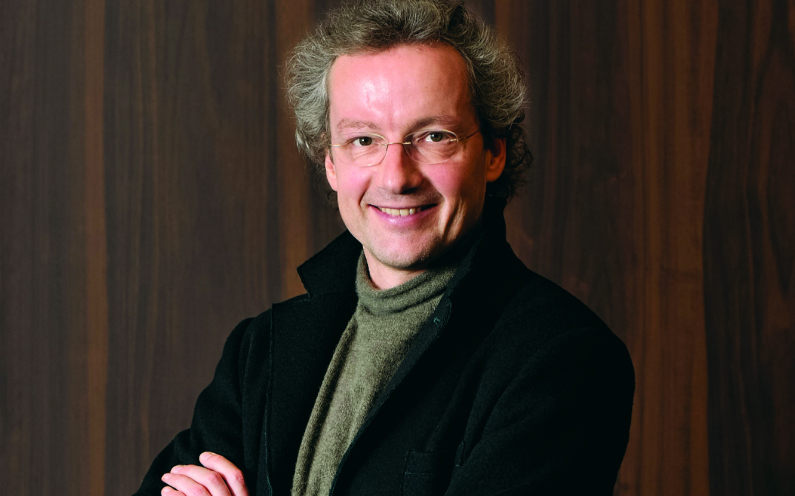Franz Welser-Möst’s work on the podium for the Salzburg Festival’s new production of Beethoven’s revolutionary operatic hymn to freedom, Fidelio, has been garlanded with praise this week. Claus Guth’s new staging has provoked considerable critical debate, but the musical aspects of the performances have been universally acclaimed. The production saw him reunited with the Vienna Philharmonic, with whom he has enjoyed a long and close artistic bond, both in the pit of the Vienna State Opera during his time as Music Director, and on the concert stages of Vienna and in touring projects across the world.
Anthony Tommasini writes in The New York Times:
“Franz Welser-Möst, who led the great Vienna Philharmonic in a transparent and majestic account of Beethoven’s score, won a huge ovation, along with the excellent singers, especially the two leads, the astonishing tenor Jonas Kaufmann, who makes a wrenching, haunted Florestan, […] and the compelling, bright-voiced soprano Adrianne Pieczonka as Leonore.”
Salzburg’s Neue-Merker critic Klaus Billand agrees that:
“A big plus for the success of this new production was the Vienna Philharmonic under the baton of Franz Welser-Möst. He conducted the symphonic passages with great dynamism. In particular, the Leonore Overture featured transparent and multi-faceted beauty of sound with strong dynamics and magnificent crescendi. A great evening at the Grosses Festspielhaus!”
The Leonore Overture took its traditional place at the crux of the second act’s drama, and was performed with the curtain down. Die Welt’s Wilhelm Sinkovicz reports that:
“Leaving behind melodrama, the focus finally fell to making music, thank God, and with the curtain closed the Leonore Overture’s rousing elan provoked the first and only storm of cheers of the whole evening. [Welser-Möst] sculpted fine nuances, such as the most delicate pianissimo in the lower strings and clarinet at the beginning of the first quartet. […] One didn’t expect such musical subtleties could balance the insensitivity of the theatrical setting…”
Karl Harb in The Salzburger Nachrichten agrees that:
“The culmination was the 3rd Leonore Overture, here for once not resulting in a fatal drop in the tension while the backstage scene-change is effected, but proving an essential component of the sonic dramaturgy. It was a wordless summary of the drama and the vision of the bigger work, evolving from subtle beginnings to frenzied fury, accentuated taut and sharp, yet equipped with incredibly detailed and finessed sound, without a gram of fat not even when charged with pathos. This proved a microcosm of [Welser-Möst’s] remarkable interpretation of Fidelio as a whole: each successive number was given its own individual contours, already the ‘Singspiel’ first scenes that are so difficult to integrate into the coming dramatic events, felt weightier than usual, and thereby also meaningful without sacrificing entirely their lighter tone. You had the impression that Welser-Möst was leading you through a rigorous and searching interpretation of both music and text to deliver this difficult piece, and found yourself recognizing it anew.”
Don’t miss the live stream of Fidelio on 22 August at 20:15 CET at www.3sat.de
Photo: Satoshi Aoyagi
Franz Welser-Möst is managed in association with IMG Artists.

